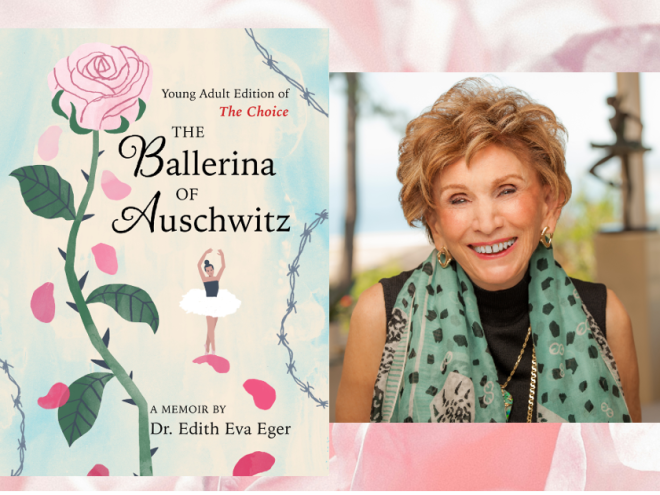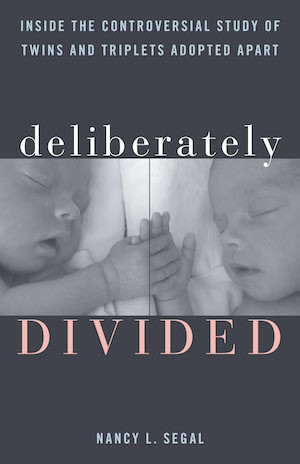Dr. Edith Eva Eger survived the Holocaust in body, mind, and spirit; her memoir powerfully illustrates her decades-long journey to not only survive, but also transcend the atrocities of the Shoah.
In 1944, Edith, a teenage ballet dancer, Olympic gymnastics hopeful, and the youngest daughter in a Hungarian Jewish family, is transported to Auschwitz in a cattle car. She and her sister Magda are selected “to life,” while her parents are immediately murdered. Throughout the catastrophic losses in the months that follow, this “Anne Frank who didn’t die” (as Edith was often called) holds onto her mother’s wisdom in the face of destruction: “Just remember, no one can take away from you what you’ve put in your mind.” In atrocious situations, she holds onto her dignity and her belief in connection and community, rather than simply trying to survive at all costs. At the end of the war, she and her sister are found by an American G.I., probably only hours from death through starvation. Eventually, they physically recover, Edith with a seriously injured upper back.
Despite her almost unbelievable experiences in several concentration and forced labor camps, Dr. Eger’s memoir does not focus on the events of the Holocaust. In fact, writing at ninety years old and still a practicing clinical psychologist, the author shows how her early life experiences became the reference points for her later life decisions (to marry and have children, to move to the United States and pursue a degree) as well as for her clinical work with traumatized veterans and civilian patients caught between life and death.
Dr. Eger is also guided by her patients’ internal struggles to embark on her own exploration of the long-term consequences of surviving, while countless others did not. Guided by Victor Frankl’s Man’s Search for Meaning and eventually by Dr. Frankl himself in friendship, the quintessential question of survivor guilt, “Why me?!”, becomes “Why not me?!” – the fuel for her determination to heal herself and others against many odds.
Dr. Eger exemplifies the dictum that psychotherapists can only guide their patients as far as they themselves have dared to go. Realizing that she will have to confront the most haunting and painful moment of her lifein order for her own growth and healing to be complete, she returns to Germany and to Auschwitz despite others’ warnings. There she comes to a hard-won conclusion that frees her, finally, to fully embrace her life and her calling. Hitler did not win her war!
While this memoir is not a how-to on overcoming trauma and loss via the essentials of positive psychology or forgiveness work, and while the clinical vignettes do not necessarily describe evidence-based practices, The Choice teaches a profound lesson: healing from darkness is a lifelong process. When undertaken arduously, it means “we continue to climb and climb,” with eternal curiosity about what could be next, as Dr. Eger shares in an interview. This memoir is a worthwhile reflection on the meaning and tasks of our existence.
The Choice is a 2017 National Jewish Book Award winner, in the Biography, Autobiography, and Memoir category.
Reinhild Draeger-Muenke left her native Germany as a young adult and has lived in the United States for almost 40 years. She is a psychologist and family therapist in the Philadelphia area, helping people heal from intergenerationally transmitted trauma.



